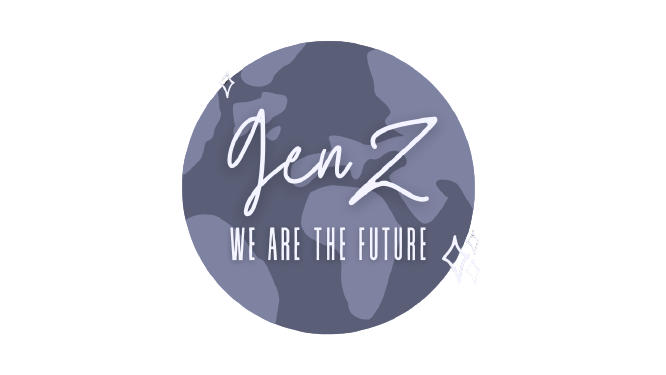Breaking Taboo Around Menstruation
Menstruation is the regular outflow of blood and mucosal tissue from the inner lining of the uterus through the vagina; it is characterized by the rise and fall of hormone levels throughout the cycle. Menarche, or the beginning of a period, generally occurs between the ages of 12 and 15. Menstruation can begin as early as the age of 8 years old and is still considered normal. The initial cycles tend to be anovulatory and vary greatly in duration. They are typically painless and occur without notice. Most people in wealthy nations reach menarche between the ages of 10 and 16. Although the exact causes of menarcheal age are unknown, genetic factors, socioeconomic factors, overall health and well-being, nutritional status, specific forms of exercise, seasonality, and family size may all play a part.
However, every menstrual cycle is different. It may be painless for some and days of endless nightmares for others. The stigmatization of menstruation is exemplified by the euphemisms or ‘code names’ that exist for the terms, such as “period,” “the rag,” “Aunt Flo,” “shark week,” “time of the month,” and many more. In addition to the euphemisms, there are also misconceptions and misinformation revolving around periods, mostly rooting in cultural or social norms. For instance, a girl on her period may not be allowed to swim as “sharks may come and attack you”; they are not allowed to cook because “their food will rot.” In some parts of the world, girls who are on their periods are seen as dirty, untouchable, or worse, a disgrace. Menstruating women and girls may be confined to outdoor sheds, where they suffer in the cold and solitude and are frequently exposed to life-threatening diseases and attacks.
Manjal neerattu vizha is coming-of-age celebration for Tamil girls done after their first menstruation
For those fortunate enough to have access to information, hygiene supplies, and a supportive environment, first periods may be exciting. For example, girls in Sri Lanka celebrate manjal neerattu vizha, also known as the Turmeric Bathing Ceremony, which is a coming-of-age celebration for Tamil girls. This celebration is done after the girl's first menstruation to symbolize her transition into womanhood. However, due to the cultural stigmas associated with menstruation, many girls around the world suffer multiple consequences as they lack the knowledge about how their bodies change as they go through puberty. They may have never been taught about what periods are, in most cases, leading some girls to believe that they are dying when they see their period blood for the first time. Period taboos and resource constraints exist all across the world, preventing these girls from managing their periods with dignity.
The pink tax is a disturbing trend in which products sold for women are more expensive than similar products for men
Many do not have the privacy to wash their hands, nor do they have access to safe, clean restrooms or even separate sanitation facilities at work, in the school, or when visiting other public institutions. Furthermore, feminine hygiene supplies are frequently unavailable or prohibitively expensive, particularly for people living in poverty or in emergency situations. Vulnerable women may be compelled to utilize makeshift, unsanitary materials, which can lead to leakage and infection, jeopardizing their health. Moreover, the existence of “pink tax” further drives women to period poverty — the inability to buy menstruation care items and must instead make their own or engage in other activities to obtain them. The pink tax refers to the general trend of items sold particularly to women being more expensive than products marketed to men, regardless of gender preference. Women in nations with better access to a variety of personal care items are negatively affected by the pink tax, however, poor women in these nations are not particularly immune to period poverty either.
Girls who don't have access to period products rely on rags, which they wash when they can, and some use banana peels, old newspapers, and leaves. These are not substitutes for menstrual hygiene products. They expose women to unexpected bleeding, which can lead to humiliation or isolation in regions where menstruation is already frowned upon. To avoid being mocked or humiliated, many girls stay home from work or school. Every year, girls who remain home four days a month for their period lose almost a month of school. This further disadvantages girls who are already less likely to have access to school.
Aside from potentially being deprived of optimum education, a lot of girls in some communities are seen to be of the age of marriage once they’ve begun their menstruation. Despite the implication that menstruation has in one transitioning into womanhood, no girl is ready for marriage or childbearing at the age they’ve had their first period. As mentioned earlier, girls can begin menstruating at the age of 10, or as late as 17. Either way, child marriage is human rights abuse that not only prevents girls from personally choosing their own partner but also exposes young girls to high risks of pregnancy and childbirth complications. Their bodies are not yet completely matured enough to bear a baby, although they are menstruating. Pregnancy and delivery complications are, in fact, the leading cause of mortality among girls aged 15 to 19.
A group of girls posing for Femme International
There is a substantial shortage of health education tools available to individuals regarding the menstrual cycle in many regions of the world due to the taboos surrounding menstruation. Women are ostracized and humiliated throughout their monthly periods because of this lack of information. As a solution to this problem, non-governmental organizations such as Femme International are implementing educational programs to teach women about their menstrual health and to inform men that menstruation does not make women unclean or unfit to perform normal tasks such as working, studying, and cooking. In spite of this, menstruation is still a highly stigmatized topic as many feel uncomfortable talking about it unless behind closed doors. Increased education, women empowerment, resources to menstruation hygiene products, and encouraging open conversations surrounding this natural experience and women’s health, in general, will promote the further stigmatization of periods in the future.
SOURCES:
Friends of UNFPA. (2020). Left in the Dark: How Period Taboos Put Women and Girls at Risk — Friends of UNFPA. Available at: https://www.friendsofunfpa.org/left-in-the-dark-how-period-taboos-put-women-and-girls-at-risk [Accessed 7 Jul. 2021].
UN News. (2019). Break taboo around menstruation, act to end “disempowering” discrimination, say UN experts. Available at: https://news.un.org/en/story/2019/03/1034131 [Accessed 7 Jul. 2021].
Litman, J. (2018). Menstruation Stigma Must Stop.... Berkeley.edu. Available at: https://pha.berkeley.edu/2018/06/05/menstruation-stigma-must-stop-period/ [Accessed 7 Jul. 2021].
Rees M (2012). The age of menarche. ORGYN : Organon’s magazine on women & health, (4). Available at: https://pubmed.ncbi.nlm.nih.gov/12319855/ [Accessed 7 Jul. 2021].
Clarke, R. (2009). Tamil Coming of Age – Manjal Neerattu Vizha. Living in the Embrace of Arunachala. Available at: https://richardarunachala.wordpress.com/2009/03/17/tamil-coming-of-age-manjal-neerattu-vizha/ [Accessed 7 Jul. 2021].
IMAGES:
Manjal Neerattu Vizha function [Cam Professionals]
The “pink tax”—Why women pay more for the same stuff as men [UI Women’s Center]
Breaking the menstrual taboo [Femme International]

